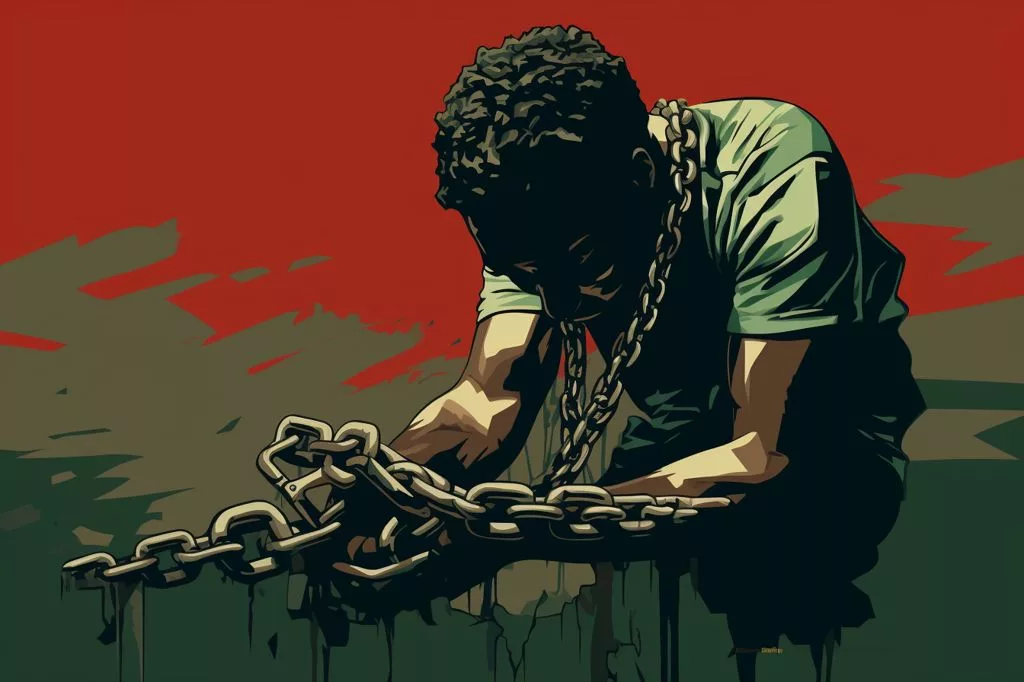South Africa is focusing on “Universal Mental Health Coverage“ for World Mental Health Day 2023, with the Department of Women, Youth, and Persons with Disabilities and the South African Federation for Mental Health advocating for a human rights-based approach to mental health. Due to South Africa’s history of racial segregation and inequality, mental health challenges are prevalent, exacerbated by the COVID-19 pandemic. To achieve universal access to mental health care, the government should invest in training mental health professionals, allocate more resources to mental health services, encourage mental health literacy, and promote collaboration among stakeholders.
What is the theme of World Mental Health Day 2023?
The theme for the 2023 World Mental Health Day is “Mental Health is a Universal Human Right.” South Africa has adapted this theme to “Universal Mental Health Coverage in South Africa.” The South African Department of Women, Youth, and Persons with Disabilities and the South African Federation for Mental Health advocate for a human rights-based approach to mental health, emphasizing the importance of investing in community-oriented care, rehabilitation, prevention, and categorizing mental disorders as a disability.
Addressing Mental Health: A Global Priority
Mental health has become a prominent issue worldwide, as countries acknowledge the gravity of these concerns and the imperative to address them. World Mental Health Day is observed yearly on October 10th, intending to increase public awareness around mental health problems and foster international dialogue. The World Federation for Mental Health has selected “Mental Health is a Universal Human Right” as the theme for the 2023 World Mental Health Day. South Africa has adapted this theme to “Universal Mental Health Coverage in South Africa.”
The South African Department of Women, Youth, and Persons with Disabilities (DWYPD), alongside the South African Federation for Mental Health (SAFMH), is participating in the global commemoration of this crucial day. Both organizations advocate for a human rights-based approach to mental health, stressing the importance of investing in community-oriented care, rehabilitation, prevention, and categorizing mental disorders as a disability. The collective efforts of DWYPD and SAFMH aim to increase public awareness around mental health issues in South Africa, particularly the right to health, encompassing mental health.
During Mental Health Awareness Month in October, the DWYPD and SAFMH will engage in numerous activities to raise awareness and address the mental health challenges faced by South Africans. A key event includes a webinar on October 17th, where DWYPD, SAFMH, and other government departments will discuss critical mental health issues impacting South Africa’s citizens. The webinar will offer a platform for stakeholders to engage and collaborate in finding effective solutions to these challenges.
South Africa’s Unique Mental Health Challenges
South Africa faces distinct mental health challenges due to its history of racial segregation and inequality. A lingering legacy of apartheid, combined with social and economic disparities, has led to a high prevalence of mental health disorders among its population. Furthermore, South Africa bears a substantial burden of infectious diseases, such as HIV/AIDS, which considerably impact mental health. The ongoing COVID-19 pandemic has intensified these pre-existing mental health issues, making it more urgent than ever to address them.
Mental health care in South Africa is provided through primary, secondary, and tertiary care services. Primary care facilities generally serve as the initial point of contact, offering health promotion, disease prevention, and basic treatment services. Specialized mental health services, including advanced diagnostics, therapy, and rehabilitation, are available at secondary and tertiary care facilities. However, the accessibility and quality of these mental health services differ significantly throughout the country, with rural areas often lacking sufficient resources and infrastructure.
The human rights-based approach promoted by DWYPD and SAFMH highlights the necessity to address these disparities and guarantee universal access to mental health care for all South African citizens. This approach calls for a transition from an institutionalized mental health care system to a more community-centered model, focusing on prevention, early intervention, and rehabilitation. Such a model also acknowledges the importance of social determinants of mental health, like education, employment, housing, and social support, emphasizing the need for governmental policies that address these factors.
Ensuring Universal Access to Mental Health Care
To achieve universal access to mental health care, the South African government must undertake several actions. First, it should invest in training and capacity-building for mental health professionals, particularly in rural areas. There is an urgent need to address the shortage of psychiatrists, psychologists, social workers, and other mental health care providers. Second, the government should allocate more resources to mental health services, ensuring adequate funding is available for the implementation of community-based programs.
Additionally, the government should encourage mental health literacy among the general population, enabling individuals to recognize early signs of mental health disorders and seek help when necessary. Establishing mental health support systems in educational institutions and workplaces can also play a vital role in addressing mental health challenges.
Collaboration among various stakeholders, including government departments, civil society organizations, and the private sector, is essential to ensure the successful implementation of mental health policies and programs. In this regard, the upcoming webinar on October 17th, involving multiple stakeholders, signifies a positive step towards a collaborative approach to mental health care in South Africa.
In conclusion, World Mental Health Day provides a crucial opportunity for South Africa to reflect on its mental health challenges and reaffirm its commitment to ensuring universal access to mental health care. By adopting a human rights-based approach and investing in community-centered care, prevention, and rehabilitation, South Africa can progress towards achieving “Universal Mental Health Coverage.” The joint endeavors of the government, civil society organizations, and the private sector are vital to realizing this goal and ensuring that every South African citizen can enjoy the right to mental health.
1. What is the theme of World Mental Health Day 2023?
The theme for the 2023 World Mental Health Day is “Mental Health is a Universal Human Right.” South Africa has adapted this theme to “Universal Mental Health Coverage in South Africa.”
2. Why is South Africa focusing on “Universal Mental Health Coverage” for World Mental Health Day 2023?
Due to South Africa’s history of racial segregation and inequality, mental health challenges are prevalent, exacerbated by the COVID-19 pandemic. To achieve universal access to mental health care, the government should invest in training mental health professionals, allocate more resources to mental health services, encourage mental health literacy, and promote collaboration among stakeholders.
3. What is the South African Department of Women, Youth, and Persons with Disabilities advocating for in regards to mental health?
The South African Department of Women, Youth, and Persons with Disabilities is advocating for a human rights-based approach to mental health, emphasizing the importance of investing in community-oriented care, rehabilitation, prevention, and categorizing mental disorders as a disability.
4. What is the purpose of World Mental Health Day?
The purpose of World Mental Health Day is to increase public awareness around mental health problems and foster international dialogue.
5. What are the mental health challenges faced by South Africa?
South Africa faces distinct mental health challenges due to its history of racial segregation and inequality. A lingering legacy of apartheid, combined with social and economic disparities, has led to a high prevalence of mental health disorders among its population. Furthermore, South Africa bears a substantial burden of infectious diseases, such as HIV/AIDS, which considerably impact mental health. The ongoing COVID-19 pandemic has intensified these pre-existing mental health issues.
6. How is mental health care provided in South Africa?
Mental health care in South Africa is provided through primary, secondary, and tertiary care services. Primary care facilities generally serve as the initial point of contact, offering health promotion, disease prevention, and basic treatment services. Specialized mental health services, including advanced diagnostics, therapy, and rehabilitation, are available at secondary and tertiary care facilities.
7. What actions should the South African government undertake to achieve universal access to mental health care?
To achieve universal access to mental health care, the South African government should invest in training and capacity-building for mental health professionals, allocate more resources to mental health services, encourage mental health literacy among the general population, and promote collaboration among various stakeholders.
8. What is the human rights-based approach promoted by the South African Department of Women, Youth, and Persons with Disabilities and the South African Federation for Mental Health?
The human rights-based approach promoted by the South African Department of Women, Youth, and Persons with Disabilities and the South African Federation for Mental Health highlights the necessity to address disparities and guarantee universal access to mental health care for all South African citizens. This approach calls for a transition from an institutionalized mental health care system to a more community-centered model, focusing on prevention, early intervention, and rehabilitation.









